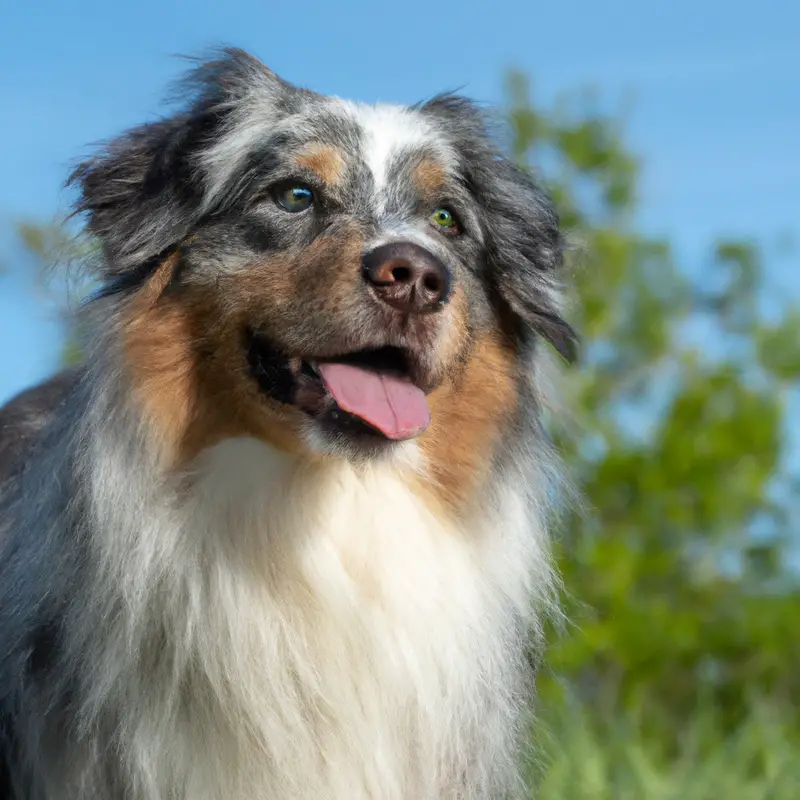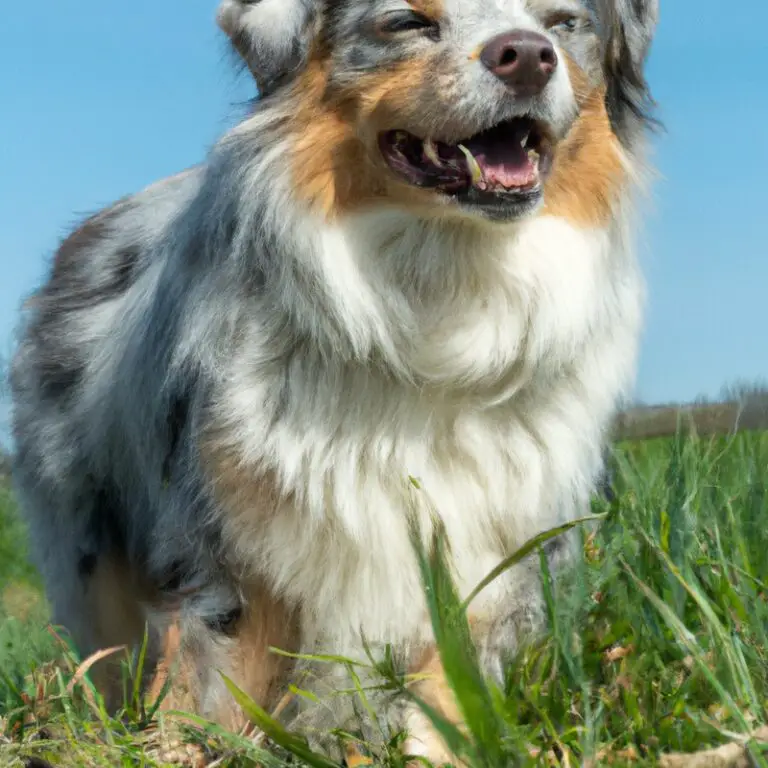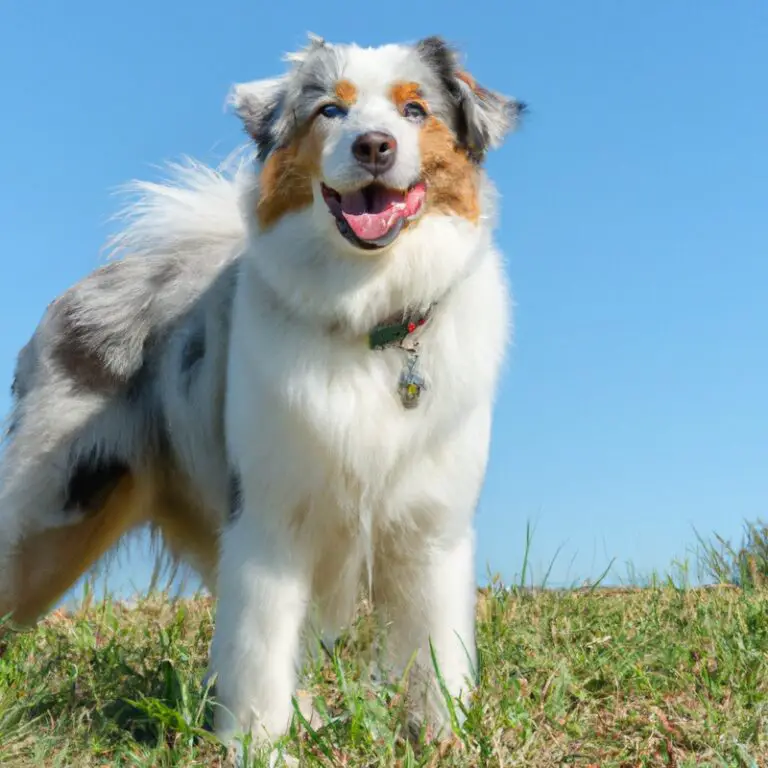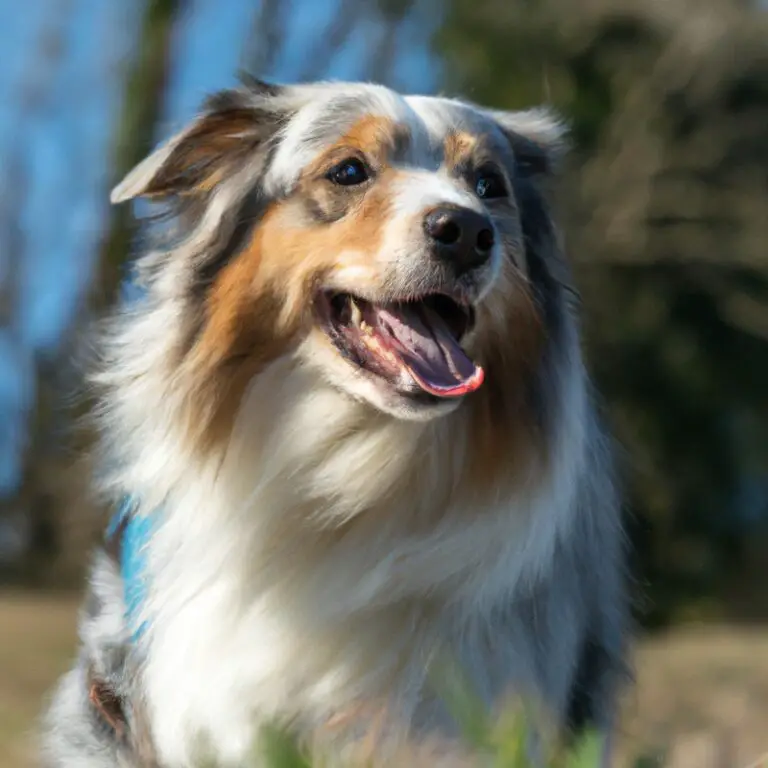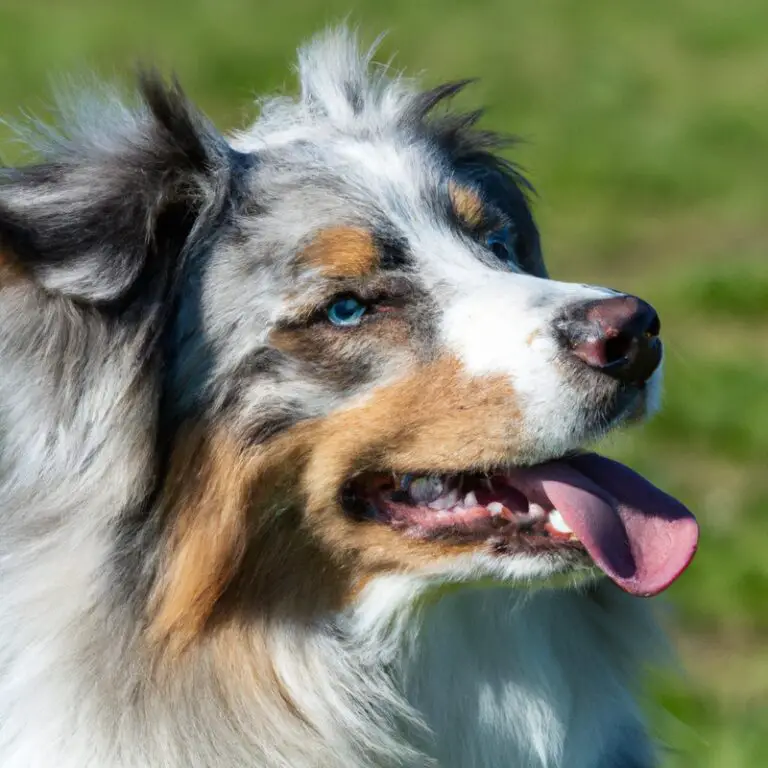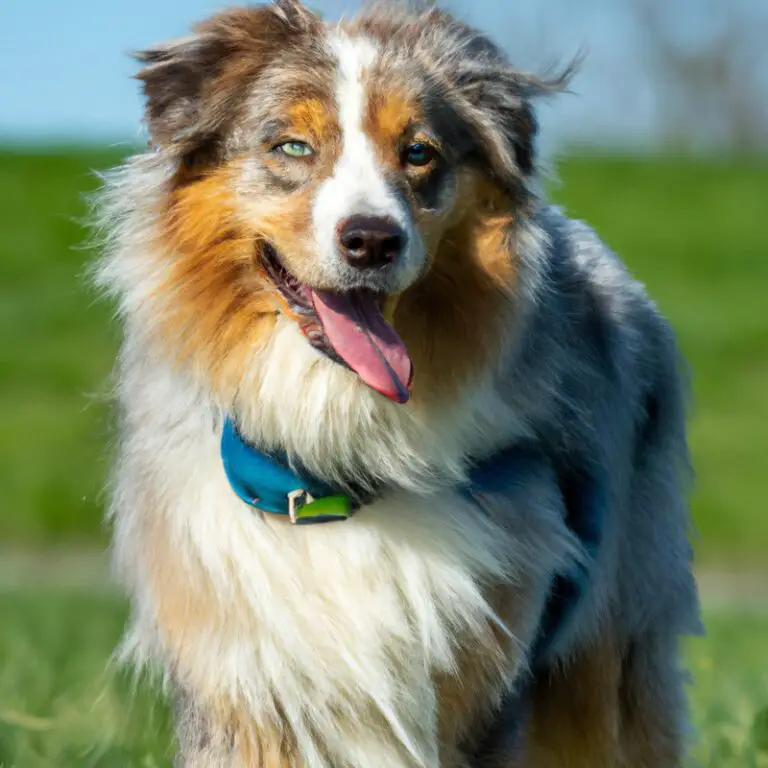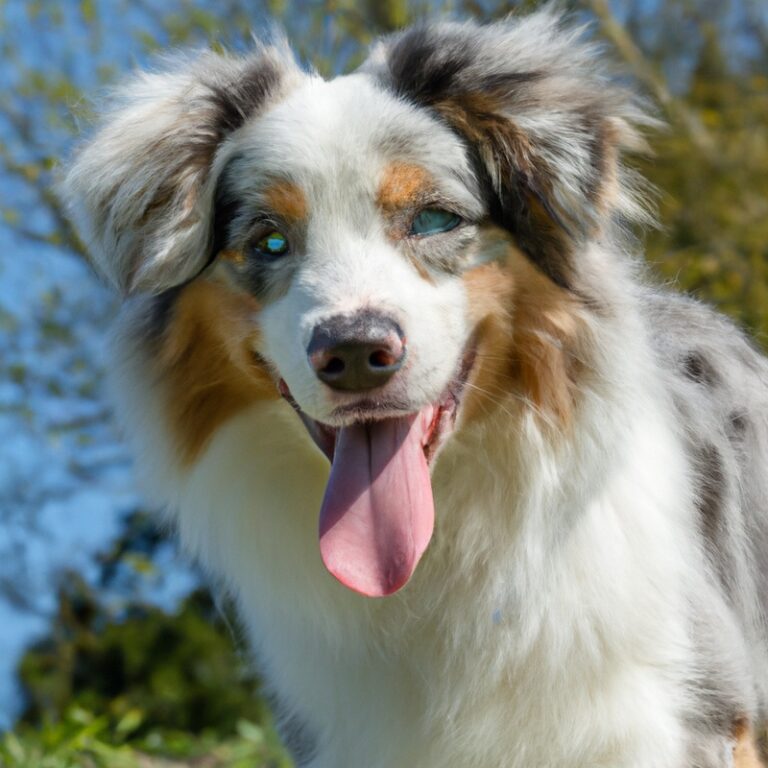How Do Australian Shepherds Handle Loud Noises?
Key Takeaways:
- Australian Shepherds can have varying reactions to loud noises, ranging from fear and anxiety to displaying curiosity or indifference.
- Proper socialization and positive reinforcement training can help Australian Shepherds develop better coping mechanisms for loud noises.
- Providing a comfortable, safe space for Australian Shepherds during loud events can help minimize their stress levels.
- Understanding an individual Australian Shepherd’s specific triggers and tailoring their training and environment accordingly is crucial for managing their reaction to loud noises.
Are you a proud Australian Shepherd owner? Then you know just how intelligent, energetic, and loving these dogs can be.
But have you ever wondered how they handle loud noises?
Well, you’ve come to the right place! As an expert in canine behavior and a devoted Australian Shepherd enthusiast, I’m here to shed some light on this topic. From understanding the breed to exploring factors influencing their reactions, we’ll dive into signs of noise sensitivity and tips to help your furry companion cope with loud noises.
So, grab a cup of coffee and let’s uncover the secrets to keeping your Aussie calm and comfortable when the volume goes up.
| Noise Level | Australian Shepherds’ Reaction |
| Loud fireworks | Tend to become anxious and fearful, may hide or exhibit signs of stress |
| Thunderstorms | May display signs of fear, such as shaking, panting, or seeking comfort from their owners |
| Loud music or concerts | Can become overwhelmed and may attempt to escape or seek a safe place to hide |
| Construction or loud machinery noises | May become agitated or scared, and try to avoid the noise source |
Understanding Australian Shepherds and Noise Sensitivity
Australian Shepherds: An Overview of the Breed
Australian Shepherds are a versatile and intelligent breed known for their agility and herding abilities. They are medium-sized dogs with a thick double coat that comes in various colors and patterns.
These dogs have a strong work ethic and love having a job to do.
Australian Shepherds are highly energetic and require regular exercise to keep them physically and mentally stimulated. They make excellent companions for active individuals or families who can provide them with plenty of exercise and mental challenges.
Australian Shepherds are loyal, affectionate, and thrive on human companionship.
With proper training and socialization, they can get along well with children and other pets. However, their herding instincts may lead them to try to control and herd small children or animals.
Australian Shepherds are intelligent and quick learners, but they can be stubborn at times.
They thrive in environments where they can engage in activities that stimulate their minds, such as obedience training, agility, herding trials, or even tasks like fetching the newspaper. Overall, Australian Shepherds are a wonderful breed that requires an active and dedicated owner who can provide them with the physical and mental stimulation they need to thrive.
Noise Sensitivity in Australian Shepherds
Noise sensitivity is a common issue among Australian Shepherds. These dogs can be highly reactive to loud or sudden noises, such as thunderstorms, fireworks, or even household appliances.
This sensitivity is thought to be influenced by a combination of factors, including their developmental stage, genetics, and previous experiences.
Signs of noise sensitivity in Australian Shepherds can vary, but often include physical manifestations of stress or anxiety, such as trembling, panting, and drooling. Behavioral indicators may include restlessness, excessive barking, or attempting to hide or escape from the noise.
Some dogs may also exhibit avoidance behaviors, such as refusing to enter certain rooms or spaces.
To help Australian Shepherds cope with loud noises, it’s important to create a safe and calming environment. This can involve providing a secure space for them to retreat to during noisy events, such as a crate or a designated “safe room.” Gradual desensitization techniques and counter-conditioning strategies, which involve gradually exposing the dog to the noise in a positive and controlled way, can also be effective in reducing their sensitivity over time.
Seeking professional help is also advisable for severe cases of noise sensitivity.
This may involve consulting with a veterinarian or veterinary behaviorist who can provide guidance specific to your dog’s needs. Behavioral therapy options, such as desensitization programs or cognitive-behavioral therapy, may be recommended.
In some cases, medication can also play a role in managing noise sensitivity, but this should always be done under the guidance of a professional.
Preventive measures can also be taken to reduce noise sensitivity in Australian Shepherds. Early socialization and exposure to various sounds during their developmental stages can help them become more resilient to noise.
Positive reinforcement training for noise tolerance can also be beneficial.
Additionally, careful breeding practices and genetic screening can help reduce the likelihood of passing on noise sensitivity traits to future generations. Dealing with noise sensitivity requires patience and understanding as a dog owner.
Building trust and comfort through supportive techniques, such as providing reassurance and rewards during noisy events, can make a big difference.
It’s important to celebrate small progresses in noise tolerance and not get discouraged by setbacks.
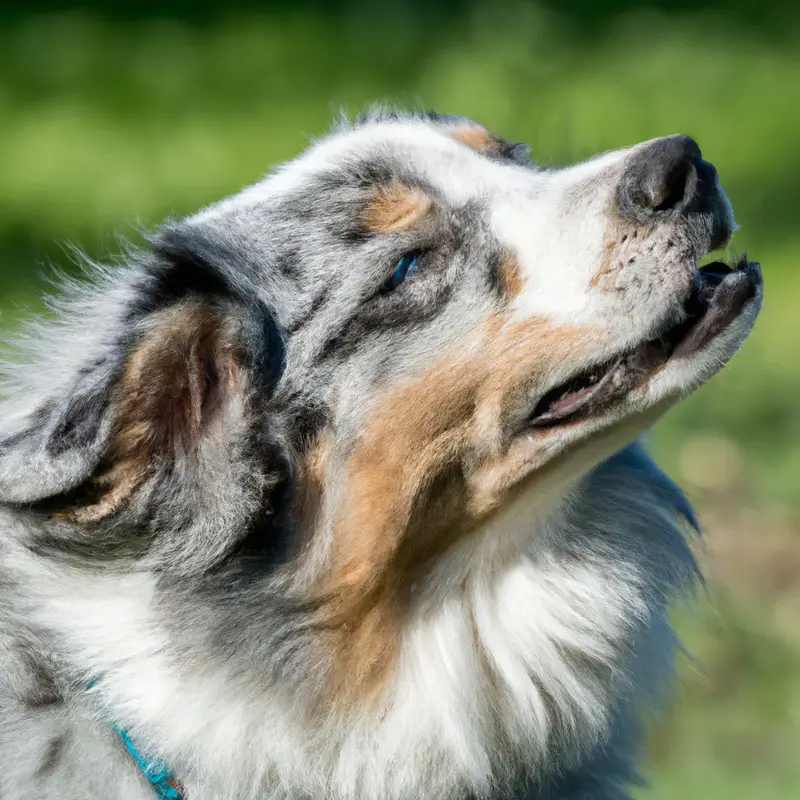
Factors Influencing Australian Shepherd’s Reactions to Loud Noises
Developmental Stage and Early Socialization
During the developmental stage, early socialization plays a vital role in shaping how Australian Shepherds handle loud noises. This stage, typically occurring between 3 to 14 weeks of age, is a critical window for exposing them to various stimuli, including loud sounds.
By gradually introducing noises in a positive and controlled manner, such as recorded sounds or gentle noises in the environment, we can help them become more accustomed to and tolerant of loud noises.
Providing positive experiences during socialization helps them build confidence and resilience to future noise-related challenges.

Genetic Predisposition to Sensitivity
Australian Shepherds may have a genetic predisposition to sensitivity to loud noises. This means that they may be more prone to feeling anxious or fearful when exposed to loud sounds.
The breed’s genetics can play a role in determining their reactions to different stimuli, including noise.
While not all Australian Shepherds will have this sensitivity, it is important for owners to be aware of the possibility and take appropriate steps to help their dogs cope. Understanding your dog’s genetic predisposition can help you better support them during times of noise-induced stress.
Previous Experiences with Loud Noises
Previous experiences with loud noises play a significant role in how Australian Shepherds handle them. If a dog has had positive or neutral experiences with loud sounds in the past, they are more likely to handle them well in the future.
On the other hand, if a dog has had negative or traumatic experiences with loud noises, they may develop fear or anxiety towards them.
These experiences can shape their reactions and determine whether they will be calm or reactive when exposed to loud sounds. It is crucial to consider a dog’s previous experiences to better understand and address their noise sensitivity.
Signs of Noise Sensitivity in Australian Shepherds
Physical Manifestations of Stress or Anxiety
Stress or anxiety can have various physical manifestations in Australian Shepherds. Some common signs include trembling or shaking, rapid breathing or panting, increased heart rate, dilated pupils, excessive drooling, and increased grooming behaviors.
You may also notice changes in appetite, such as decreased or increased eating, as well as gastrointestinal issues like diarrhea or vomiting.
Additionally, dogs may exhibit restlessness, pacing, or inability to settle down. These physical manifestations are important indicators of your Australian Shepherd’s stress or anxiety levels, and it’s crucial to be aware of them to provide appropriate care and support.
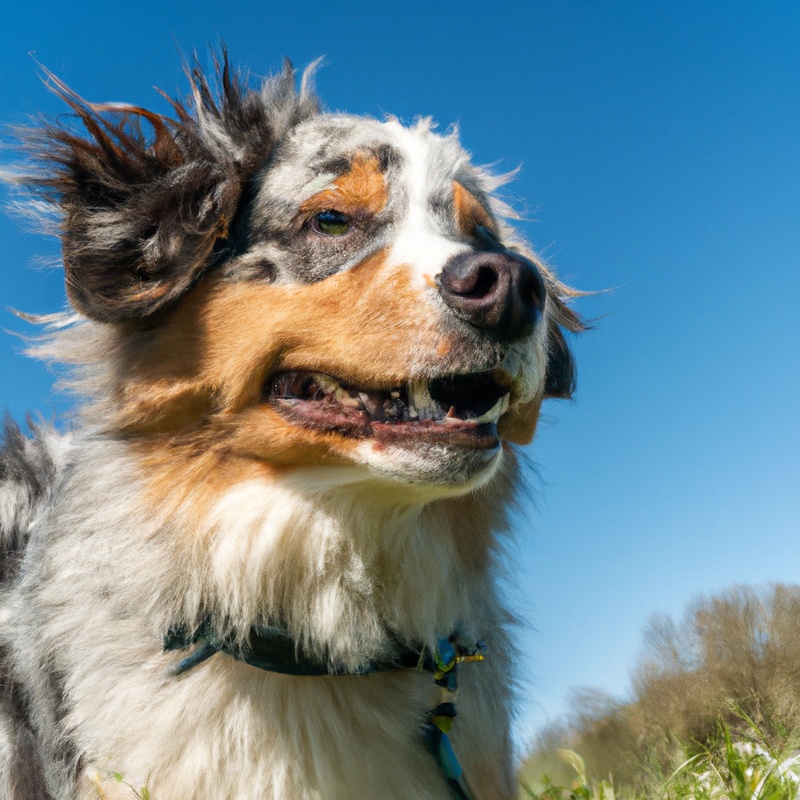
Behavioral Indicators of Distress
Behavioral indicators of distress in Australian Shepherds can be observed when they are exposed to loud noises. Some common signs include trembling, excessive panting, pacing, and seeking hiding spots.
They may also display destructive behaviors such as chewing or scratching furniture.
Vocalization, like barking or howling, can also be a sign of distress. Changes in appetite or sleep patterns and increased clinginess are additional indicators to watch for.
It’s important to pay attention to these behaviors and provide support and comfort to help your Australian Shepherd cope with noise sensitivity.
Avoidance or Escape Behaviors
When Australian Shepherds are exposed to loud noises that trigger their sensitivity, they may exhibit avoidance or escape behaviors. These behaviors are a natural response to the stress and anxiety caused by the noise.
Australian Shepherds may try to retreat to a safe space or hide in an attempt to distance themselves from the noise.
They may also try to escape the situation altogether by running away or seeking shelter in an enclosed area. It’s important to recognize these behaviors as signs of distress and take steps to help your Australian Shepherd feel safe and secure during loud noise events.
Tips for Helping Australian Shepherds Cope with Loud Noises
Create a Safe and Calming Environment
Creating a safe and calming environment is essential for helping Australian Shepherds cope with loud noises. Here are some tips on how to achieve this:
- Provide a designated safe space: Set up a quiet, cozy area in your home where your Australian Shepherd can retreat to when they feel overwhelmed. This can be a crate, a specific room, or a comfortable bed with calming scents.
- Use white noise or calming music: Background noise such as white noise or soothing music can help mask sudden loud noises and create a calming atmosphere for your dog.
- Create a den-like atmosphere: Dogs naturally seek out small, enclosed spaces when they feel anxious. You can create a den-like atmosphere by using blankets or a crate cover to make your Australian Shepherd feel more secure.
- Consider pheromone diffusers: Adaptil diffusers release synthetic pheromones that mimic the comforting scent of a mother dog. These diffusers can help reduce anxiety and create a sense of calm for your Australian Shepherd.
- Use calming aids: There are various calming aids available such as anxiety wraps, calming supplements, and herbal remedies. Consult with your veterinarian to determine the best option for your dog.
- Maintain a consistent routine: Stick to a regular schedule for feeding, exercise, and rest to provide a sense of stability and predictability for your Australian Shepherd. This can help alleviate stress and anxiety related to loud noises.
By creating a safe and calming environment for your Australian Shepherd, you can help them feel more secure and reduce their sensitivity to loud noises. Remember, each dog is unique, so it may take some trial and error to find the most effective strategies for your furry friend.
Gradual Desensitization Techniques
When helping Australian Shepherds cope with loud noises, gradual desensitization techniques can be extremely effective. This involves exposing your dog to the source of noise in a controlled and gradual manner, starting with a very low volume or intensity.
Over time, you can increase the volume or intensity little by little, allowing your dog to become more comfortable and less reactive to the noise.
It’s important to go at your dog’s pace and never force them into a situation that causes extreme fear or anxiety. By patiently and consistently practicing gradual desensitization, you can help your Australian Shepherd build confidence and reduce their sensitivity to loud noises.
Counter-Conditioning Strategies
Counter-conditioning strategies are an effective way to help Australian Shepherds cope with loud noises. The goal is to change their emotional response to these sounds from fear or anxiety to a positive or neutral association.
One method is to pair the loud noise with something enjoyable for your dog, such as treats or playtime.
This helps create a new positive association with the noise. Another strategy is to gradually expose your Australian Shepherd to the loud noise at a low volume, and then gradually increase the volume over time.
This helps them become desensitized to the noise and reduces their fearful response.
It’s important to start with a volume level that your dog can tolerate without becoming overly stressed or anxious. Consistency is key when using counter-conditioning strategies.
You should try to expose your Australian Shepherd to the loud noises on a regular basis, but always at a level that they can handle.
Over time, their tolerance and positive association with the noise should improve. Patience is also important when using counter-conditioning techniques.
It may take time for your Australian Shepherd to feel comfortable with the loud noises, and progress may be slow at first.
But by consistently using these strategies and celebrating small successes, you can help your dog build confidence and overcome their noise sensitivity. It’s worth noting that while counter-conditioning can be effective, it may not work for every Australian Shepherd.
If your dog’s noise sensitivity is severe or causing significant distress, it may be necessary to seek professional help from a veterinarian or veterinary behaviorist.
They can provide additional guidance and potentially recommend other interventions, such as behavior modification techniques or medication, to help manage your dog’s noise sensitivity.
Seeking Professional Help for Noise Sensitivity in Australian Shepherds
Consulting a Veterinarian or Veterinary Behaviorist
When dealing with noise sensitivity in Australian Shepherds, consulting a veterinarian or veterinary behaviorist is a key step in finding a solution. These professionals have expertise in animal behavior and can accurately assess and diagnose your dog’s specific issues.
They can provide guidance on how to manage and alleviate your Australian Shepherd’s noise sensitivity through behavioral modification techniques or recommend appropriate medications if necessary.
Consulting a veterinarian or veterinary behaviorist ensures that you have the support and knowledge needed to help your dog cope with loud noises effectively.
Exploring Behavioral Therapy Options
When it comes to exploring behavioral therapy options for noise sensitivity in Australian Shepherds, there are a few effective approaches. One option is desensitization therapy, which involves gradually exposing your dog to loud noises in a controlled and safe environment.
This helps them develop tolerance and reduces their fear response.
Another option is counter-conditioning, where positive experiences and rewards are associated with the noise to change your dog’s emotional response. Finally, seeking the guidance of a professional, such as a veterinary behaviorist, can provide you with personalized strategies and support throughout the process.
Remember, each dog is unique, so it’s important to find the right therapy that suits your Australian Shepherd’s needs.
Medication and Its Role in Managing Noise Sensitivity
Medication can play a crucial role in managing noise sensitivity in Australian Shepherds. It can help reduce the anxiety and stress associated with loud noises, allowing your dog to feel more at ease.
Speak to your veterinarian or veterinary behaviorist to discuss the appropriate medication options for your Australian Shepherd.
They can recommend medications such as anti-anxiety drugs or sedatives that can help your dog better tolerate loud sounds. However, it’s important to remember that medication should be used as part of a comprehensive treatment plan that also includes behavioral strategies and environmental modifications.
Always follow your veterinarian’s guidance and closely monitor your dog’s response to the medication.
Preventive Measures to Reduce Noise Sensitivity in Australian Shepherds
Early Socialization and Exposure to Various Sounds
Early socialization and exposure to various sounds are essential for reducing noise sensitivity in Australian Shepherds. It’s important to expose these dogs to different noises, such as thunder, fireworks, and loud machinery, from a young age.
This helps them become accustomed to these sounds and reduces the likelihood of them developing a fear or sensitivity towards them.
By gradually introducing them to various noises in a positive and controlled manner, we can help them build resilience and confidence. It’s a simple yet effective way to prepare Australian Shepherds for a noisy world.
Positive Reinforcement Training for Noise Tolerance
Positive reinforcement training is a valuable tool for helping Australian Shepherds develop noise tolerance. By using positive reinforcement methods, such as treats, praise, and play, we can create a positive association with loud noises.
The key is to start with low-level sounds and gradually increase the intensity over time.
For example, you can play recordings of common household noises and reward your dog for staying calm and relaxed. It’s important to be patient and go at your dog’s pace.
Every dog is different, and some may take longer to develop tolerance than others.
By celebrating small successes and consistently rewarding desired behaviors, you can help your Australian Shepherd build confidence and resilience when confronted with loud noises. Remember to keep training sessions short and fun, and always end on a positive note.
With time and practice, positive reinforcement training can be an effective way to reduce noise sensitivity in Australian Shepherds.
Careful Breeding Practices and Genetic Screening
Careful breeding practices and genetic screening play a vital role in reducing noise sensitivity in Australian Shepherds. Breeders who prioritize this issue will select dogs with a lower predisposition to sensitivity.
Genetic screening helps identify any potential genetic markers for noise sensitivity, allowing breeders to make informed decisions about mating pairs.
By breeding dogs with a lower likelihood of passing on noise sensitivity genes, the chances of having noise-sensitive offspring can be significantly reduced. This proactive approach helps create healthier and more resilient Australian Shepherds.
The Importance of Patience and Understanding
Dealing with Noise Sensitivity as a Dog Owner
Dealing with noise sensitivity as a dog owner requires patience and understanding. It’s important to recognize that your Australian Shepherd may have an aversion to loud noises and may exhibit signs of stress or anxiety.
To help your dog cope, create a safe and calming environment at home.
Provide a designated space where they can retreat during noisy times. Gradual desensitization techniques can also be helpful.
Introduce your dog to low levels of noise gradually, and reward them with treats and praise for remaining calm.
Celebrate small progresses in noise tolerance and avoid pushing your dog too far too quickly. Seek professional help if needed from a veterinarian or veterinary behaviorist who can provide guidance and explore behavioral therapy options or medication if necessary.
Remember, every dog is unique, so be patient and understanding as you support your Australian Shepherd through their noise sensitivity.
Building Trust and Comfort through Supportive Techniques
When it comes to building trust and comfort for Australian Shepherds with noise sensitivity, supportive techniques are crucial. It’s important to create a safe and calming environment for your dog, providing them with a designated space where they can retreat when feeling anxious.
Additionally, gradual desensitization techniques can help them become more tolerant of loud noises.
By exposing them to low levels of the noise and gradually increasing the intensity, you can help them become more comfortable over time. Counter-conditioning strategies, such as pairing the noise with positive experiences, can also be effective in reducing their anxiety.
Remember, patience and understanding are key when working with noise-sensitive Australian Shepherds, and celebrating small progress can go a long way in building their trust.
Celebrating Small Progresses in Noise Tolerance
As an Australian Shepherd owner, I understand how challenging it can be when your furry friend struggles with loud noises. Celebrating small progresses in noise tolerance is an important part of helping your Australian Shepherd overcome their sensitivity.
Instead of focusing solely on the end goal, it’s crucial to acknowledge and appreciate any improvements along the way.
One way to celebrate small progresses is to use positive reinforcement techniques. When your Australian Shepherd shows even the slightest sign of being more comfortable around loud noises, reward them with treats, praise, or playtime.
This helps reinforce their positive association with the noise and encourages them to continue making progress.
Another way to celebrate small progresses is to create a calm and safe environment for your Australian Shepherd. Provide a quiet space where they can retreat to when they feel overwhelmed.
Use soothing music or white noise to help drown out loud sounds.
By creating a peaceful environment, you can support your Australian Shepherd in feeling more secure and less anxious. Remember, progress takes time and patience.
Each small step forward is a reason to celebrate.
Celebrating these small progresses not only boosts your Australian Shepherd’s confidence but also strengthens the bond between you and your furry companion. So, take the time to celebrate those little victories, and together, you and your Australian Shepherd can overcome their noise sensitivity.
Final Verdict
Australian Shepherds can have varying reactions to loud noises due to a combination of factors such as breed predisposition, developmental stage, and previous experiences. It is important as dog owners to understand the signs of noise sensitivity in our Australian Shepherds, and provide them with a safe and calm environment to cope with loud noises.
Gradual desensitization techniques and counter-conditioning strategies can also be effective in helping them build tolerance.
Seeking professional help and taking preventive measures through early socialization and careful breeding practices are also crucial. Above all, patience, understanding, and celebrating small progresses are key in helping our Australian Shepherds overcome noise sensitivity.

